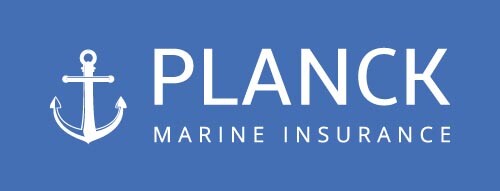Interview with
Mr. Søren V. Planck
Owner
First of all, Søren, please tell us a bit about your shipping background. As I understand it, you have experience in working with several ship owners?
My shipping background goes years back. I started my education in 1980 as shipbroker at Lehmann Junior in Copenhagen. I had an all-around education within chartering, operation and liner department. After ending my education, I continued working for five more years for the company. During this period, I got a very wide education within shipping and especially maritime law.
In 1987, I was asked if I was interested in joining a newly established company, Greenland Trading, which was selling provisions of products to public and private health sectors in Greenland. I found that it could be a great challenge to try something new. I worked two years for the company, where I was tasked with the responsibility of arranging inland transportation in Denmark, booking cargo, preparing custom documentation and making the negotiations and contracts in connection with the purchasing and selling of various products.
It was a very interesting time, working for Greenland Trading. However, there was not enough challenge for me and I also figured out that my roots were in shipping. An opportunity turned up for me to come back to shipping and, especially, into the legal side. In 1999, I was employed at Dannebrog Rederi/Nordana Line, who dealt with project cargo, Ro/Ro vessels and tanker divisions. During my employment, Nordana Project & Chartering was established and various new buildings were built for it.
I took over responsibility for marine and corporate insurance, claims handling and the participated in the renewal of insurance covers. I was also assisting in the legal advice towards chartering and operations departments.
In 2007, I was promoted in Dannebrog Rederi/Nordana Line and become manager for the insurance claims department with the overall responsibility. During my twenty-one years at Dannebrog Rederi/Nordana Line, I spent time abroad (particularly in Africa and the east Mediterranean) settling claims to avoid long outstanding guarantees etc.
In 2012, I was contacted by Thorco Shipping and asked if I was interested in joining their team to assist on the legal side, taking care of claims handling and getting an overview of insurance and claims. In 2013, Thorco Shipping merged with Clipper Project and moved to Copenhagen.
In 2014, I could once again move on and became employed at Nordic Tankers (Tank division) where I spend most of my time on the insurance and legal sides. The fleet of owned, chartered and commercial vessels numbered around 200, which means that I spent a lot of time on the insurance renewal of various marine insurance plans, legal advice and hull and machinery claims handling.
Nordic Tankers was owned by a capital formation and the result was the company being split up in various pieces and sold. Nordic Tankers ended up with five vessels and eight TC vessels. At the beginning of 2019, the company was sold to MOL Chemical in Singapore.
I saw the opportunity to start up my own company as I’d noticed that a lot of ship owners do not have space for an insurance and claims person, mostly as there wouldn‘t be enough work for them during the day. However, as there are a lot of benefits (saving time in claims handling, better overview in insurance, security in the insurance covers etc.), I do believe that Planck Marine Insurance can assist with various inquires.
The insurance world is a murky one to many of us. Can you tell us about your general experience with marine insurance?
If you look at your own personal insurance, I am quite sure that many of the readers have not read their policies but simply trust their insurance broker. I had been working with a lot of insurance brokers and insurance companies and, generally speaking, it‘s a matter of trust and openness. Do not hide any information. If they trust you and you trust them you will always have a dialogue.
There are grey zones in all insurance coverage and various discussions occur about whether there is coverage or not. If you have a good reputation and follow the applicable rules for insurance cover, I‘m rather convinced that your losses will be covered. A least an amicable settlement will be reached.
The insurances marked are very tricky and it takes a lot of time to find out. Do not forget that insurance companies are businesses and they are living off selling insurance coverage! The main issue is that you’re taking out an insurance policy without reading it, then just placing it somewhere out of the way. It is a better idea to keep in contact with your insurance company/broker and keep them informed if there are any developments/changes in your business. I’d recommend getting a policy through an insurance broker.
I’m sure many know about fine print, the promises from the insurance companies etc. How can you, as an independent consultant, help out?
When you need insurance coverage you should contact your insurance company and explain that you will need a policy for this business. Independent consultants can help in two ways: make sure the company takes out insurance with the right partner and find out if there are insurance companies who specialise or can do it better (price/coverage).
If you decide to go to your insurance company and take out a policy, the independent consultant can go through it, check it out and discover whether it’s sufficient or if there is something that needs to be changed in order to avoid any misunderstandings in the event of an incident. An independent consultant works for and/or on behalf of you.
In your experience, what are the main problems relating to companies’ insurance policies?
There are huge challenges when it comes to an insurance policy for a company. There are only very few companies who can afford to be self-insured. The main issues are what you need and what is compulsory for corporate insurance? I am located in Denmark and can assist Danish companies with what they need and what is compulsory in Denmark.
If anyone from outside Denmark asks me what they need in insurance cover, I can recommend options, but I don’t always know which types of corporate cover are compulsory. However, if we’re looking at marine insurance coverage, I can step in and assist in taking out the correct insurance covers.
Trust is key. Can insurance companies be trusted overall? Can you please explain to us how the world generally works regarding marine insurance?
Overall, the majority of insurance companies can be trusted, but you‘ll always find some that are not trustworthy. Before dealing with an insurance company, I would look into their reputation and rating. It is easier to deal with insurance companies in Europa than it is to deal with them in the Far East.
Marine Insurance covers various insurance covers from the P&I, hull and machinery, liability, cargo insurance etc. When we looked years back, P&I insurance covers were very difficult to deal with, as the thirteen international P&I clubs could not find a level for premiums etc. and ship owners were hit by huge supplementary calls. Today many of the P&I clubs are dealing with the individual member and members loss ratio, which I also find more reasonable. If you have an incident, you have to pay.
The h&m market has been soft for many years and you can obtain reasonable premiums with highly rated insurance companies. Unfortunately, the London market has collapsed and various Lloyd‘s syndicates have closed down. The renewal of hull and machinery are more difficult now and it follows that they do not accept a high share anymore. So, it‘s more difficult when you are collecting outstanding funds after an incident.
If you spend the (unfortunately long) time benchmarking your insurance covers, I‘m sure that it is possible to obtain better cover on a lower premium, but again, it all depends on your loss ratio. Marine insurance is something that companies don’t spend time on, but are also forgetting the saved premiums and better claims handling our money on the top of earnings.
Project cargo is often delivered to inland destinations beyond the ports. Can places like Africa and parts of the Middle East with poor infrastructure be fully covered by insurance companies? What kind of good advice would you give to anyone with a project to deliver to such a place?
According to my knowledge, there is only one thing for which you cannot take out an insurance cover and that’s fraud. There are a lot of aspects to consider when it comes to complicated inland transportations. When the seller of the project cargo makes the sale contract, it is very important that it is stipulated under which terms and conditions the cargo shall be delivered. Such contracts shall be incorporated in the letter of credit. Various ship owners accept cargo to inland destinations and a combined bill of lading can be issued.
It is very important that the packing of the cargo are sufficient and suitable for the sea and inland transportation. Very often we see that cargo is being damaged due to insufficient packing and missing marks for where the cargo can be lifted. Make sure that you have a specified report with all the information which can be hand over to the various carriers.
The most important issue is to take out an all-risk transportation insurance premium all depend on the shipping terms and if insurance companies can obtain recover in case of a claim.
How is best to get in touch with you?
Planck Marine Insurance
Søren V. Planck
Phone: +45 2148 9246
Skype ID: s-planck
Mail: spl@planckmarineinsurance.com
Web: www.planckmarineinsurance.com




